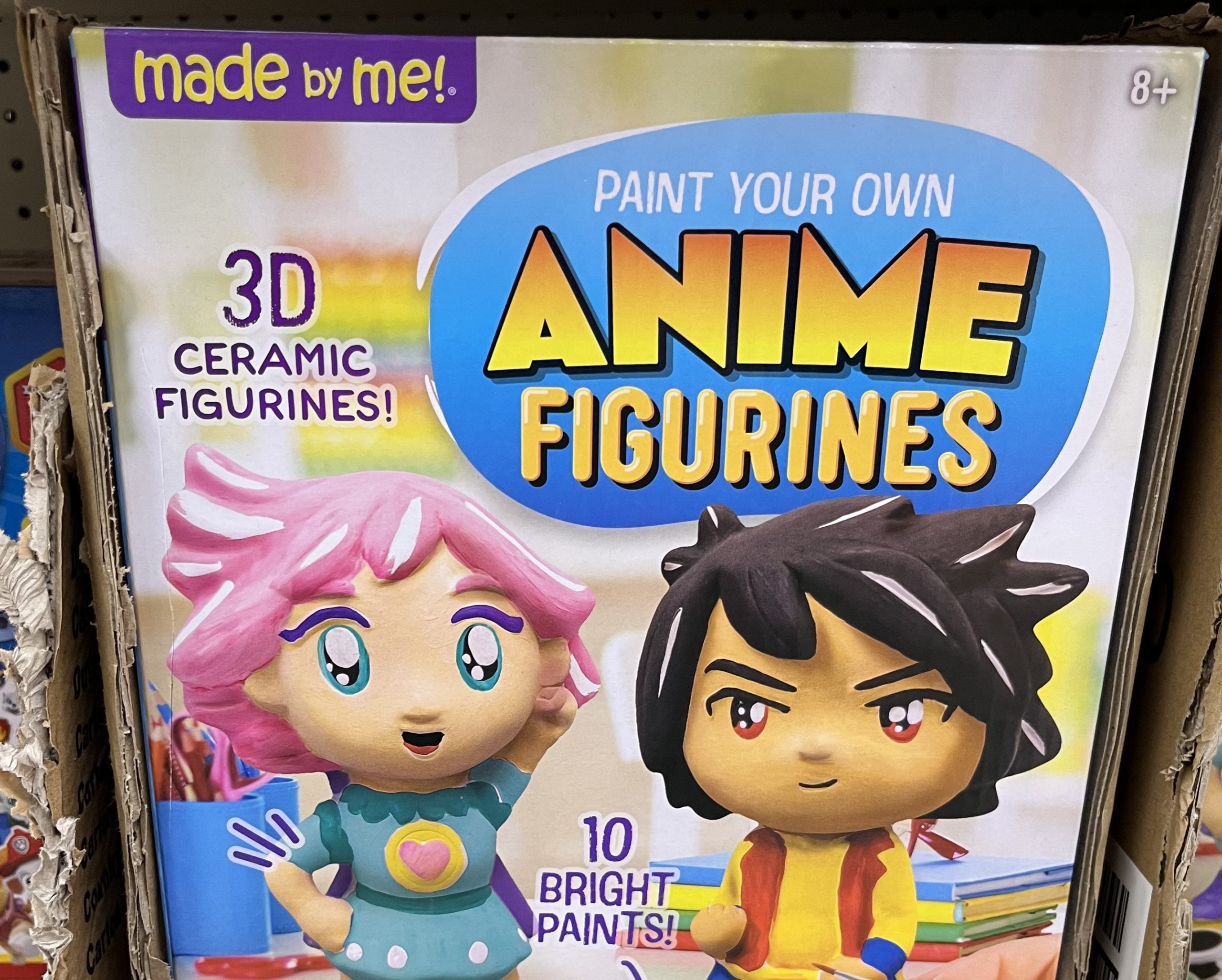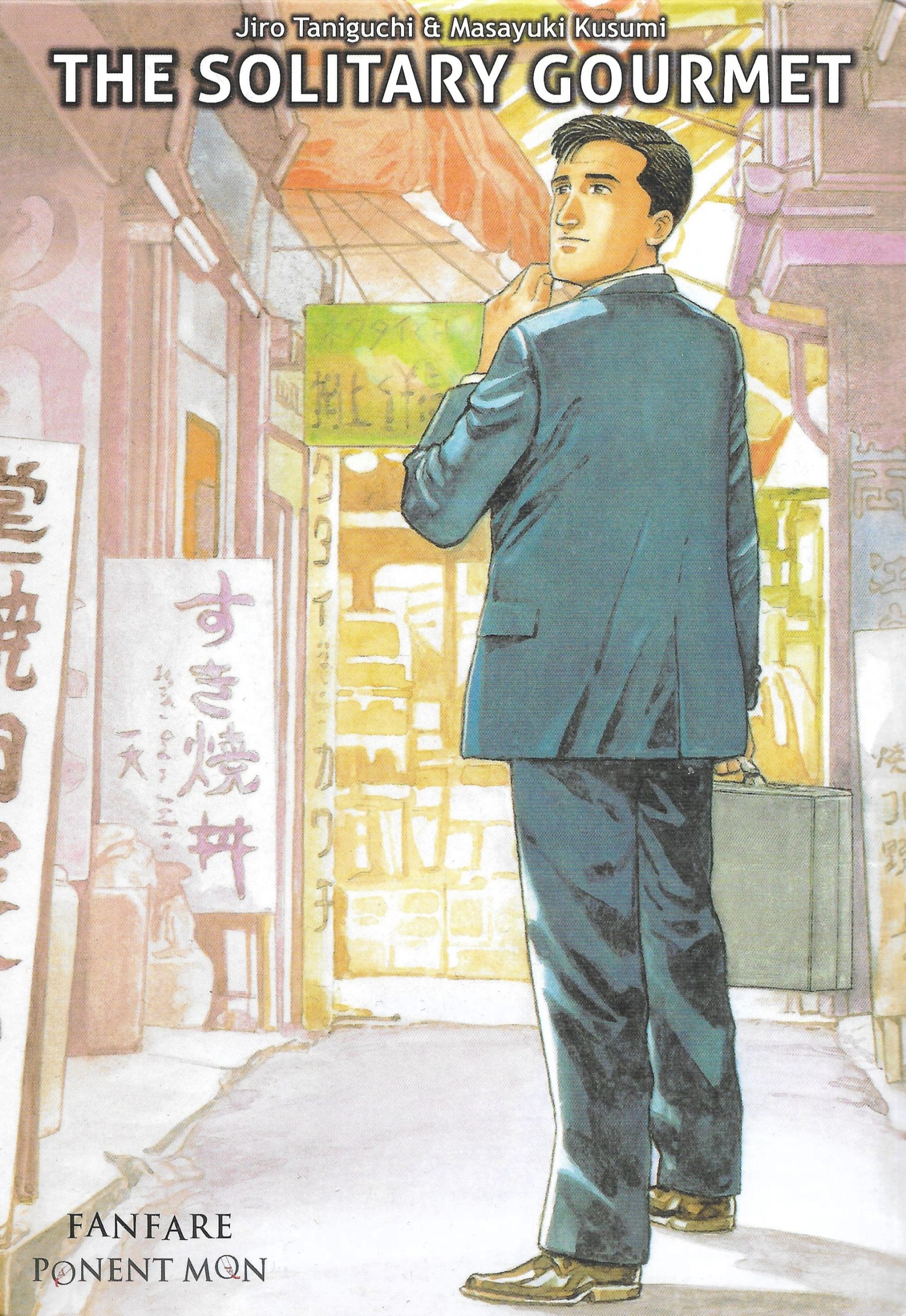Once one of the United States’ largest manga publishers, TOKYOPOP has been credited by Publishers Weekly columnist Deb Aoki with driving “The Manga Revolution” of the early 2000s, publishing, at its peak, as many as 500 titles of licensed manga and original comics a year for Western audiences. While the publisher has faced its fair share of difficulties over the years (e.g., shuttering most of its North American operations in the mid-aughts), in its current iteration, TOKYOPOP has undertaken a thoughtful transformation—strengthening its editorial direction, expanding its carefully-curated catalog of diverse titles, and reaffirming its commitment to inclusive storytelling—that’s been warmly received by fans, making it one of PW‘s fast-growing independent publishers in both 2022 and 2023.
In an era where storytelling continues to evolve across cultures and identities, TOKYOPOP stands at the forefront of bringing diverse, global narratives to readers everywhere. Under the direction of Lena Atanassova, editor-in-chief since September 2024, the publisher stands out for its continued commitment to expanding its catalog of diverse and inclusive titles, reflecting the richness of contemporary audiences. Among its latest initiatives is the 2020 launch of LoveLove, a romance imprint that celebrates love stories in all their forms—across genders, orientations, and backgrounds.
 Lena Atanassova headshot. Courtesy of TOKYOPOP.
Lena Atanassova headshot. Courtesy of TOKYOPOP.The Beat spoke with Atanassova about LoveLove, what differentiates the imprint’s editorial philosophy, what it means to champion diversity through the lens of romance, and how the imprint continues to evolve in response to shifting reader demographics. Additionally, Atanassova exclusively shares that TOKYOPOP is collaborating with WEBTOON and WEBTOON Originals creator Jeongussi to release Unnie, I Like You!, a slice-of-life GL romance about two destined lovers, which will be LoveLove’s first-ever full-color print edition of a GL WEBTOON adaptation.
This interview was edited slightly for clarity.
OLLIE KAPLAN: Can you tell our readers more about the LoveLove imprint? What differentiates the imprint?
LENA ATANASSOVA: LoveLove is our romance imprint, and at its heart (pun a little intended), it’s all about inclusivity and equal celebration of all kinds of love. It was born of our desire to publish romance stories in every form, all under the same imprint — queer, straight, and everything in between — because love is love, and everyone deserves to see themselves represented in the stories they read.
When we first conceived of the brand, we noticed something interesting — and honestly, a little frustrating — about how bookstores categorized romance. “Romance” almost always meant straight romance, while queer love stories were often shelved separately as a kind of “special interest” category. That division didn’t reflect reality or how people love or even consume romance content, so we wanted to change that.
That’s how LoveLove was born. We wanted to create a space where all kinds of love stories could live side by side without being boxed in. Since we launched the imprint in 2020, I’ve been really happy to see more publishers and bookstores adopt a more inclusive approach, where romance is simply romance, regardless of who’s at the center of the story. I’m proud that we were among the first to push for that shift.
What makes LoveLove special is that as an imprint, it brings together so many voices with stories from Japan, Korea, Spain, France, the U.S., and more, with subgenres that range from sweet romcoms to deeper emotional journeys. It’s very much part of TOKYOPOP’s larger mission of “manga for everyone,” and I think that ethos really comes through in the imprint.
 LoveLove logo. Courtesy of TOKYOPOP.
LoveLove logo. Courtesy of TOKYOPOP.KAPLAN: What are your duties or areas of responsibility as Editor-in-Chief?
ATANASSOVA: As Editor-in-Chief, I oversee our incredible editorial team, a group of passionate, creative people who truly love what they do. Every single one of them is a genuine fan of manga and comics, which makes such a difference. Their enthusiasm shines through in the care and thought they bring to every project, and it really shows in the final books we publish.
I handle the publishing schedules and catalog planning, essentially setting the roadmap for each season, while the team manages day-to-day production. I also curate and acquire the content we publish (with the help of our wonderful licensing team), from our LoveLove and main TOKYOPOP lines to the co-productions we create with partners like Disney, Mattel, or Ubisoft (to name just a few). Overall, I’m always looking for unique titles that bring something fresh and meaningful to readers.
It’s a role that blends organization and creativity in an interesting way, and I feel genuinely privileged to do it. I also get to collaborate on special editions and exclusive covers for retail partners like Kinokuniya, which is always fun. More than anything, I see myself as the keeper of our content — making sure every book reflects our “manga for everyone” mission and meets the high quality our fans deserve.
KAPLAN: How does LoveLove approach inclusivity—such as queer representation, international creators, and characters with different body types and identities in romance stories?
ATANASSOVA: Because most of our titles are licensed, there are always some limitations to what we can publish. It really depends on what’s available to license, what kinds of stories creators are making, and, of course, simple discovery — there’s so much content out there, and we’re still a relatively small team doing our best to find as many gems as we can.
That said, inclusivity is at the heart of what LoveLove is and the whole reason we launched the imprint. We want to represent as many different kinds of people, love stories, and experiences as possible. It’s an ongoing, ever-growing mission for us. I’m constantly talking with our current and potential licensing partners about the kinds of titles we’re looking for — ones that highlight underrepresented authors, characters, or themes — and encouraging them to bring us stories that reflect that diversity.
We’re also mindful of how we localize the titles we publish. Sensitivity and respect are really important to us, whether that’s in translation choices, cover design, or how we present and market a book. We want international audiences to experience these stories in a way that stays true to the creator’s intent while feeling authentic and accessible to readers everywhere.
Of course, we love hearing from fans. Since there’s so much incredible content being made, reader recommendations help us discover works we might not have otherwise. The more people share what they’d love to see, the better chance we have of bringing those stories to a wider audience.
KAPLAN: How do you define your target audience?
ATANASSOVA: Our target audience is really anyone who enjoys a good romance story. Within that, we offer a wide range of subgenres: there’s romantasy, slice-of-life, sci-fi and even horror; we have BL, GL, and straight romance. Whether it’s sweet and fluffy or full of drama, or even exploring some more toxic relationships, we really try to offer a little bit of everything.
From a sales data standpoint, our core readership tends to be women in their 20s and 30s, but I never want to narrow the scope of who LoveLove is for. It’s truly meant for everyone. That’s why we work hard to include as many different kinds of stories under the imprint as we can, representing a mix of different romance niches, subgenres and tropes.
We also make sure our titles cover a broad range of age ratings so there’s something for both teen and adult readers. We take content warnings seriously because we want everyone to feel informed and comfortable when picking up one of our books, so there will always be an age rating and content warnings on the back of every LoveLove book.
At the end of the day, my hope is simply that anyone interested in reading romance can find a LoveLove story that connects with them in some way.
 Cover of 18+ title, The Gardener’s Favorite Poisonous Flower by Rirako Kabashima. Courtesy of TOKYOPOP.
Cover of 18+ title, The Gardener’s Favorite Poisonous Flower by Rirako Kabashima. Courtesy of TOKYOPOP.KAPLAN: At one of your panels, someone asked if LoveLove will publish more mature content. Can readers expect more of those stories in the future?
ATANASSOVA: We do publish a variety of mature titles, and as always, we include clear content warnings so readers know what to expect. In recent years, we’ve been steadily expanding our 18+ offerings across subgenres.
Whenever possible, I also request uncensored artwork from our licensors. In some regions, the original art has to be censored, but if a creator has an uncensored version available, I love being able to give them the chance to have their work published in its original form.
So yes — readers who enjoy more mature, high-spice-rating romance can definitely look forward to seeing even more variety from LoveLove in the future.
KAPLAN: Same question as 1b, but with trans stories.
ATANASSOVA: This is actually a good example of some of the challenges we face as a publisher that primarily works with licensed content. I’m always actively looking for trans stories, and they would be absolutely at home in the LoveLove lineup. Unfortunately, these stories are still underrepresented worldwide, particularly in the markets we license from, such as Japan.
That said, we’re always open to reader suggestions, and I truly mean that. I would love to publish more trans romance, genderqueer romance, and stories that explore a wider range of gender identities and expressions — as well as to work with creators who identify as trans themselves.
The good news is that with the rise of webtoons and digital self-publishing, we’re starting to see a broader range of stories emerging. That’s really exciting, and we’ll continue doing our best to discover and champion those voices wherever we can.
KAPLAN: At AX 2025, you reiterated your commitment to the LoveLove imprint and the idea that “love is love.” Why is the mission of LoveLove so important, especially when love in all forms is currently under attack, especially politically?
ATANASSOVA: We’re living through a very reactive time politically, both here in the U.S. and in many other parts of the world. Every day, there are people fighting so hard for queer rights, trans rights, and the simple ability to exist as themselves. I want to make it very clear that TOKYOPOP supports that fight. We believe in freedom of expression and in everyone’s right to live authentically.
Our team includes queer people, myself among them. I’m bi and married to a woman, so this mission is also deeply personal to me. On top of the attacks on queer and trans rights and the silencing of “nonconforming” voices, there’s the alarming rise in book bans and the politicization of what people are “allowed” to read. On the one hand, it’s a frightening and disorienting time, but I believe it’s also one that calls on all of us to stand firm in our values.
Maybe we are “just” a manga and comics publisher, but stories matter, representation matters, and access and availability of content matters. If we can bring even a small spark of joy into the world or help someone feel seen through the stories we publish, then I think we’re doing something worthwhile.
 Let’s Eat Together, Aki and Haru, Volume 1, by Makoto Taji. Courtesy of TOKYOPOP.
Let’s Eat Together, Aki and Haru, Volume 1, by Makoto Taji. Courtesy of TOKYOPOP.KAPLAN: I’m very impressed with your commitment to diverse storytelling, which seems to resonate with manga readers I’ve met at your LoveLove panels. Have you had any fan interactions that have reconfirmed your commitment to diverse stories? What have you learned from those interactions?
ATANASSOVA: I’m always so moved when fans come up to me after panels to share their experiences — whether it’s talking about their favorite TOKYOPOP titles or telling me they’ve been reading our books since they were kids and feel like the company has grown up alongside them. It’s incredibly humbling and such an honor to know that something we’ve published has brought them joy, or that we’ve licensed a series they’ve been hoping to see in English.
I also love hearing what kinds of tropes or stories fans want to see more of in LoveLove — those conversations are always fun and inspiring. I don’t want to give myself too much credit, because the heart of it all belongs to the creators who make these stories, but my mission is to bring as many of them as possible to readers and to live up to their trust and enthusiasm.
Fans often ask about seeing more representation: trans stories, romances featuring disabled protagonists, stories that show love in less conventional ways, such as polyamory. Every time I have those conversations, I feel reenergized and even more committed to expanding what we publish. I bring that feedback directly to our licensing partners and share just how eager and passionate readers are about these stories. It’s a great reminder of why inclusivity matters and how much it means to people to see themselves in the pages of a manga.
KAPLAN: You’ve spoken about how TOKYOPOP accepts readers’ suggestions regarding what they want to read. How can our readers submit their suggestions? Do you personally review these suggestions—and what suggestions (or even book pitch) stand out to you?
ATANASSOVA: Readers can send us their suggestions through our contact page (https://tokyopop.com/pages/contact-us) or on social media. Those messages are passed along to me, and I review them to see if they’re a good fit for our catalog, whether that’s LoveLove or another TOKYOPOP imprint. If something looks promising, I work with our licensing team to reach out to the original creator or publisher. Licensing can be complex, but if a title feels right for us, we’ll always try. Due to the challenges of selling long series in print, we do tend to favor shorter manga; readership and purchasing drops off over time, and our retail and distribution partners can better support shorter series for their full runs.
I also personally review book pitches. Right now, we’re mainly considering fully developed projects, and if it’s an ongoing work, I like to see the full story outline, including estimated series length and how it ends.
What really makes a pitch stand out to me is passion and clarity of vision. We’ve worked directly with creators before, including webtoon artists bringing their work to print, so it’s definitely possible when the right project comes along. I’m always excited to find those projects where the creator’s vision and heart really shine through.
 Cover of Monster and Ghost, Volume 1 (Hardcover Edition) by Himemiko. Courtesy of TOKYOPOP.
Cover of Monster and Ghost, Volume 1 (Hardcover Edition) by Himemiko. Courtesy of TOKYOPOP.KAPLAN: Is there a particular LoveLove title that you are proud of?
ATANASSOVA: A recent release I’m particularly excited about is Monster and Ghost, created by Himemiko, which we’re publishing as a hardcover, a first for manga in our LoveLove line. There’s been so much excitement from fans around this title, and we were honored to partner with Kinokuniya on a beautiful exclusive cover and shikishi board. The hardcover edition even features gold foil detailing. Our team — from editors and localization specialists to graphic designers — put so much care into making it a truly gorgeous, collectible book.
On a more personal note, I’ll always have a soft spot for the slice-of-life GL series Futaribeya, written and illustrated by Yukiko. It was the first GL title we ever published, even before LoveLove officially existed, and it’s one that I worked on closely myself. The story feels realistic and relatable, about two girls who start as roommates in school and slowly become something more. I really identified with the characters and saw a lot of parallels with my own life and experiences. It was also the first manga I’d read that featured a bi woman, which meant a lot to me personally.
KAPLAN: Since TOKYOPOP publishes both Japanese and Western creators, what are your expectations for authenticity and cultural respect in love stories inspired by Japanese genres? How do you manage creator concerns regarding the safety of telling these stories?
ATANASSOVA: I like to take a nuanced approach to localization. Our goal is always to make each book accessible to English-speaking readers while staying true to the author’s intent and preserving cultural nuance. For example, we’ll often include translation notes for holidays, festivals, or other cultural references that might not be familiar to a casual reader. The same care applies when we’re working with creators from other parts of the world as well.
We always try to collaborate with translators who have a deep understanding of the culture behind the story and encourage them to add helpful context where needed. Each book goes through a team process — translators, copy editors, and editors all working together to ensure that the translation is accurate, natural, and reads beautifully in English.
Sometimes, the author will also share notes or specific requests on how they’d like something translated, and we’re happy to accommodate that. At TOKYOPOP, we really value collaboration, and our process reflects that. Having multiple people review a book helps us maintain quality, catch small errors, and ensure the final product honors both the creator’s vision and the reader’s experience.
 Cover of ALIEN STAGE: The Art Book. Courtesy of TOKYOPOP.
Cover of ALIEN STAGE: The Art Book. Courtesy of TOKYOPOP.KAPLAN: Can you tease any upcoming projects that you are particularly excited about?
ATANASSOVA: This one’s a little LoveLove-adjacent since it’s not technically part of the imprint, but I have to give a shoutout to our upcoming ALIEN STAGE: The Art Book, created by Team Forma+9. I’m especially excited about the deluxe edition, which will include special U.S.-only extras like a poster and — my personal favorite — shiny holographic gilded edges. It’s going to be such a visually striking collector’s piece, and I can’t wait for fans to see it.
On the LoveLove side, I’m really looking forward to Walking in Your Tracks by Tatsumi Kifuu, a new BL series launching in spring 2026. It’s a heartfelt story about human connection and overcoming life’s challenges with kindness. It also centers a disabled protagonist — a first for LoveLove — and that representation is something audiences have been really eager to see.
And this one hasn’t been officially announced yet, so I suppose this is me kind of announcing it… But I’m thrilled about our first full-color GL webtoon print release, Unnie, I Like You! It’s a lighthearted, slice-of-life romance between two women who are very different from one another, yet share a past life as fated lovers. We’re so excited to partner with WEBTOON and creator Jeongussi to bring this charming story to print for the first time.
KAPLAN: Is there anything else you want to add?
ATANASSOVA: Honestly, I’m just happy and honored to be in this position where I get to do something I’ve loved since I was a kid. I grew up reading TOKYOPOP books, and I feel genuinely privileged to now be part of the company and the industry that first sparked my love for manga.
It’s an interesting and exciting time for LoveLove and for TOKYOPOP as a whole. As the manga landscape keeps evolving, it feels wonderful to be part of that change. And against the backdrop of everything happening in the world, I just hope creativity and connection can serve as a bright light for someone, even if it’s through a single story that makes them feel seen or brings a moment of joy.
Community is so important, especially in our increasingly fragmented world, and it has always been my hope, since its inception, that LoveLove can be the type of brand that helps foster the kind of genuine connection that brings people together through shared stories and experiences.
Thank you so much for your time and interest in what we’ve been up to with LoveLove. It means a lot to be able to share what I (and the amazing team at TOKYOPOP) are so passionate about!
TOKYOPOP’s manga, light novels and branded merchandise can be purchased at the publisher’s online store and in bookstores across the United States and Canada. Those exclusively interested in LoveLove titles can purchase them here.















![Ghost of Yōtei First Impressions [Spoiler Free]](https://attackongeek.com/wp-content/uploads/2025/11/Ghost-of-Yotei.jpg)





 English (US) ·
English (US) ·